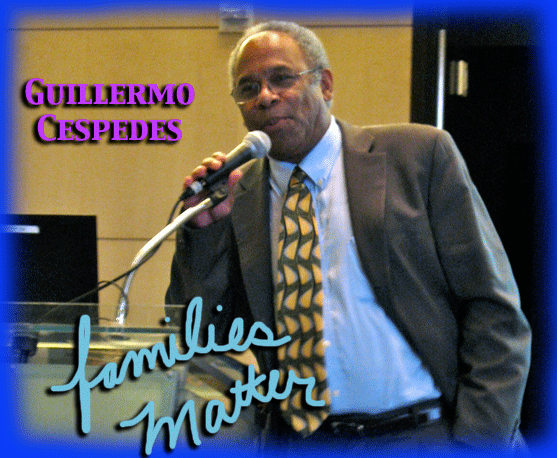
When it comes to trying to keep kids out of gangs (or grabbing kids as they’re slipping perilously in the direction of the streets), Deputy Mayor Guillermo Cespedes says he’s switching the emphasis of the city’s Gang Reduction and Youth Development program—GRYD—from individuals to families.
Cespedes, who was named by the mayor to head GRYD in 2009, has a background in social work, and is a strong believer in family systems theory—the idea that an individual can’t be best understood in isolation, but rather as a part of a multigenerational family or a “system.”
Since he came to the job, Cespedes has been working steadily to make better use of the family systems model in the design of the city’s gang prevention programs.
LA Times columnist Jim Newton takes a look at how Cespedes and GYRD are doing: Here’s a clip:
….Gripped by the sense that they were losing control, the parents [in a particular family whose kids were drifting toward trouble] called for help. It came in the form of a local organization, whose counselor dove into the life of this young family, escorting the kids to school, arranging for tutors, counseling the parents. Slowly, life settled down. The son got glasses, started doing his homework and brought up his grades; the younger daughter joined a program for future executives and thrived.
Asked to explain what got his attention and turned him around, the boy responded, “Jesus,” then quickly added, “and the ladies.”
The counselor for this session was Harry Aponte, a nationally recognized gang-intervention expert from Philadelphia, and he patiently waded through the family history as the audience of intervention workers listened, many taking notes.
This family-centered approach represents a new tack in Los Angeles’ long quest to divert young people from gangs. The philosophy behind it is that focusing on a single troubled child isn’t enough. Schools and neighborhoods surround children, but their families are their core of support and thus the most natural people to help them.
“We’re shifting the focus from the individual to the family,” Deputy Mayor Guillermo Cespedes explained. “Every family has a problem-solving mechanism that gets jammed. We’re trying to address that.”
Newton also reports that, at a meeting last week with the Times editorial board, LAPD Chief Charlie Beck is so sold on what Cespedes is doing that, “… he’s judging the field of mayoral candidates in part by which ones would keep the office structured as part of the mayor’s staff. That configuration is useful, Beck explained, because gang crime is not spread evenly throughout the city, and giving the council oversight of the efforts means that there are pressures to spread its resources across 15 districts, rather than concentrate them where they are needed. ‘If [the program] becomes a council department again,’ he said, ‘it’s not going to have the focus it has now.'”
